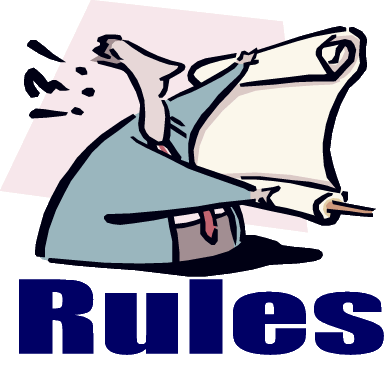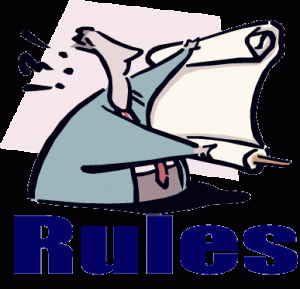by Rosette Pyne
Guess What? The Rules Do Apply to YOU!
There are lots of rules in college…academic, safety, legal, procedural, financial, etc. They are in place for everyone – not just for a few, not just for everyone but you! You are part of the everyone – yes you are, believe it or not. I know you want to feel special and you are special – you were admitted to an unbelievably prestigious Ivy League school, you have the red and blue in your blood forever. But, the rules apply to you too!
Presently in Career Services, we have on campus recruiting interviews taking place. Last year more than 12,000 interviews were conducted on campus. WOW, that’s a lot of interviews! But, there could have been many more. How, you ask? Well if students didn’t cancel at the very last minute other students could have taken their place. Oh I know, you’re thinking to yourself, “but I had xyz reason”…sure, sure. Believe me when I say we have heard them all. It’s kind of like the dog ate my homework, my computer crashed, my roommate didn’t give me the message… you get the idea. With employers conducting ½ hour interviews in 48 recruiting rooms each day, there are many students coming and going. Perhaps you think you won’t be missed, who will really care, and I just can’t make it no big deal. Guess what folks? It is a big deal. Selection for an interview means you have been screened by the employer who may have looked at as many as 400 resumes to pick you. You are invited and of your own freewill you sign up for an interview. Then the day of interview arrives, but you don’t. This is not about those students who are legitimately ill or have an emergency; unfortunately that does happen. This is about students who forget about it, lose interest, or have a conflict.
What should you do? Cancel as soon as you know you are not going to participate in the interview – don’t wait until two hours before your interview to call in and don’t brush it off by not showing up. You must call 215-898-4068. Do not call other Career Services numbers.
Our policy is clear on late cancellations and no shows. Familiarize yourself with the process and procedures. You can find them here. If you are doing on campus interviews, the RULES DO APPLY TO YOU!











